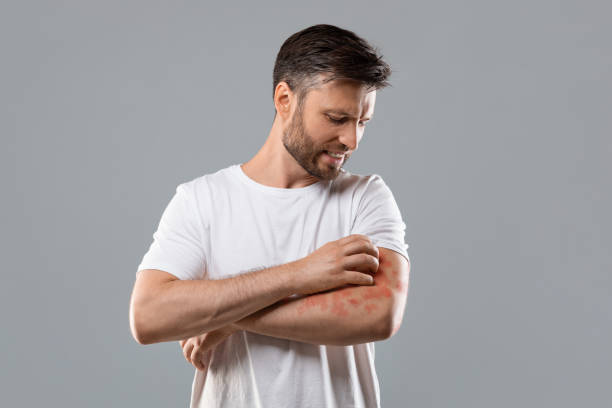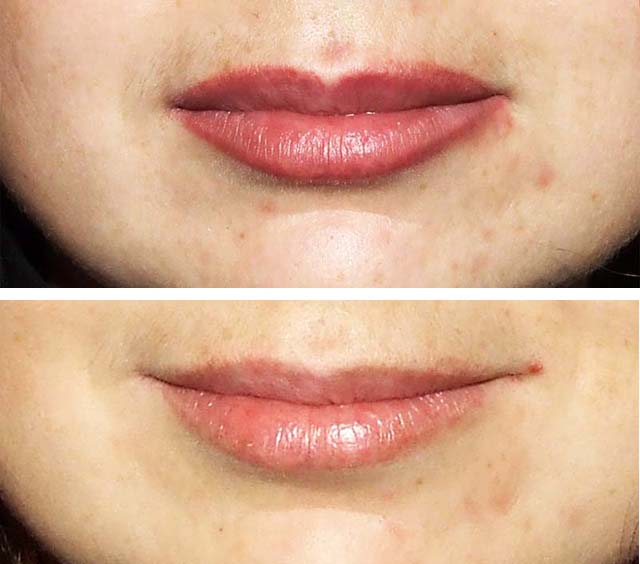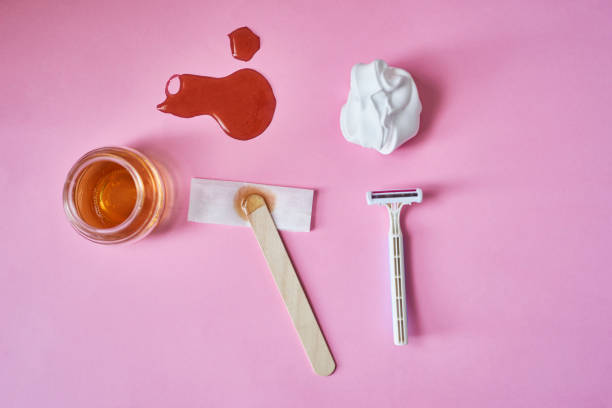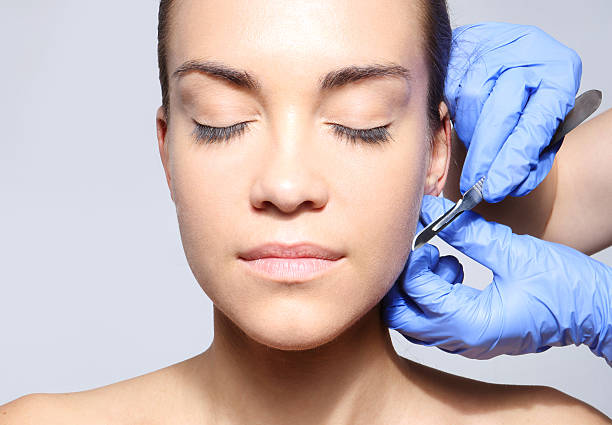When it comes to irritated skin, one of the most common questions poised is, How long will it take to heal? The answer isn’t always straightforward as it hinges on various factors, including the cause and severity of the irritation, alongside individual healing capabilities. In this article, we’ll delve into the intricacies of skin irritation, the factors influencing healing time, and the stages of the repair process, all designed to give you a clearer understanding of what to expect during your skin’s journey back to health.
The Basics of Skin Irritation
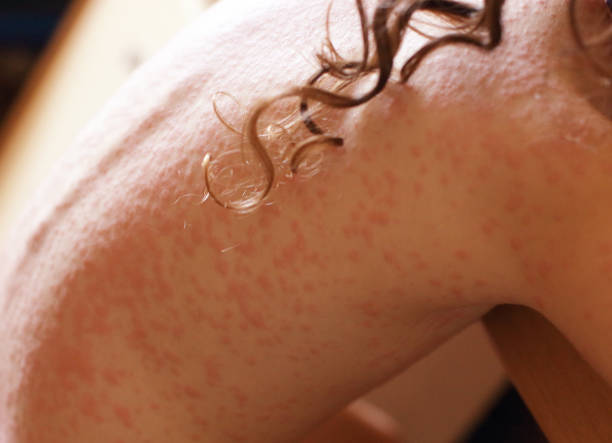
Skin irritation is a common issue that can stem from various sources, including environmental factors, allergies, or exposure to harsh chemicals. It often manifests as redness, itching, swelling, or flaking of the skin. Common irritants include soaps, detergents, fragrances, and certain metals, which can disrupt the skin’s natural barrier, leading to irritation. Preventative measures include avoiding known irritants, using gentle skincare products, and keeping the skin moisturized. If symptoms persist, consulting a dermatologist is advisable to rule out underlying conditions and receive targeted treatment.
Factors Influencing Healing Time
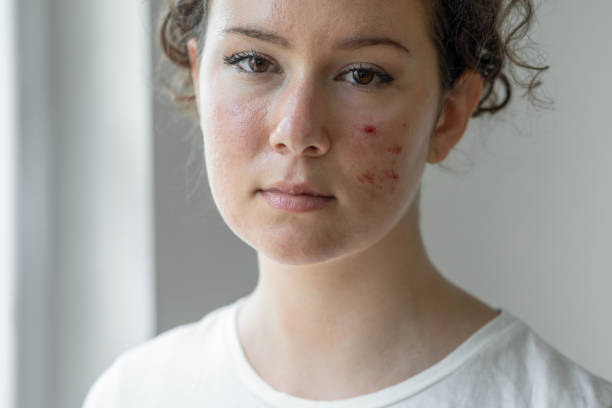
The lengths to which irritated skin will require to heal is not set in stone. Several elements play critical roles in the healing timeline. A robust immune system can hasten recovery, while underlying health conditions might slow it down. Additionally, age-related factors and lifestyle choices can also influence the duration of healing. Below are some factors that can significantly affect the healing process:
- The immune system’s efficacy and skin repair mechanism.
- The severity and type of skin irritation you’re dealing with.
- Contributions of age and overall physical health towards skin rejuvenation.
- External circumstances, including climate and persistent exposure to irritants.
Stages of Skin Healing
Immediately following skin irritation, the body launches its defense through inflammation. This necessary biological response signifies that the body is beginning its healing work. However, accompanying symptoms like redness, heat, swelling, and discomfort may cause significant distress. Understanding this initial phase is crucial to managing expectations about the healing process.
The Regeneration Process
Following inflammation, the body’s regenerative forces spring into action. Cells begin to repair and multiply, replacing the damaged ones and paving the way for new tissue growth. During this stage, it’s imperative to stay hydrated and support the skin with appropriate care, including gentle cleansing and the use of beneficial skincare products. Keeping the skin well-moisturized aids in its resilience and the overall healing process.
Final Healing and Remodeling
The journey concludes with the final healing and remodeling stage. Here, the new tissue strengthens, and in the case of deeper irritation, scar tissue forms. The skin’s texture and appearance may continue to improve over several months, depending on the skin’s initial damage and the care administered during the healing process.
Typical Healing Timelines for Irritated Skin
In cases of mild skin irritation, healing can be swift and generally uncomplicated. Most minor irritations will resolve within a few days to a week, especially with proper care. Over-the-counter options like hydrocortisone creams and soothing lotions can expedite the healing process. Numbered steps below showcase the typical care routine for mild skin irritation:
- Identify and remove the source of irritation.
- Apply over-the-counter soothing creams or ointments as appropriate.
- Protect the skin from further irritation by avoiding harsh chemicals and excessive touching.
Moderate to Severe Skin Irritation
For more severe skin irritations, the healing process can take considerably longer—ranging from a couple of weeks to even months. Such cases often require professional medical intervention. Below is a table highlighting common treatments for moderate to severe skin irritations and their typical influence on the healing timeline.
| Treatment Type | Description | Expected Influence on Healing Time |
|---|---|---|
| Prescription Topical Creams | Higher-strength creams specifically designed to combat intense irritation. | Can significantly reduce healing time when used correctly. |
| Antibiotics | Used if the skin irritation has led to or is at risk of infection. | Essential for recovery; healing time may be prolonged without them. |
| Dermatological Procedures | Procedures such as laser therapy for correcting scar tissue post-healing. | Varies depending on the procedure; some may have immediate effects while others require multiple sessions. |
Enhancing the Healing Process
Accelerating the skin’s natural healing process is possible with targeted care and lifestyle changes. The application of select skincare products containing ingredients renowned for their restorative properties can make a significant impact. Moreover, adjustments in daily habits—increased water intake, balanced diet, stress management, and ensuring sufficient sleep—can contribute to a faster recovery. For sustainable skin health, it’s also vital to include sun protection as a regular part of your skincare regimen, especially as your skin heals.
Conclusion
In conclusion, the timeline for irritated skin to heal is a variable that depends on the interplay of numerous factors. While mild irritation often clears up quickly with minimal intervention, more stubborn or severe cases may demand a greater deal of patience and specialized care. Understanding the stages of skin healing and recognizing the importance of a tailored approach to skincare are keys to successful recovery. Remember to listen to your body, apply gentle healing practices, and consult with a dermatologist if your skin’s condition doesn’t improve or worsens.
FAQs
1. Can diet affect the healing time of irritated skin?
Yes, your diet can influence the healing process. Foods rich in vitamins C and E, zinc, and omega-3 fatty acids can support skin health and potentially speed up recovery.
2. How can I tell if my skin irritation is healing properly?
Signs of proper healing include a reduction in redness and swelling, alleviated pain, and the absence of heat in the affected area. Over time, you should notice healthy skin replacing the irritated skin.
3. Are there any specific ingredients I should look for in skincare products to help with healing?
Ingredients such as aloe vera, chamomile, and centella asiatica are known for their soothing and healing properties, while hyaluronic acid helps to hydrate and restore the skin’s barrier.
4. When should I seek professional medical treatment for skin irritation?
Professional care is necessary if symptoms persist or worsen over a few days, or if accompanied by fever or signs of infection such as pus. Severe pain, significant swelling, or if the irritation spreads, also warrant medical attention.
5. Can stress affect how long it takes for irritated skin to heal?
Stress can indeed impact healing times because it weakens the immune response, which is critical for skin repair. Managing stress through various techniques can thus be an important aspect of promoting skin healing.
